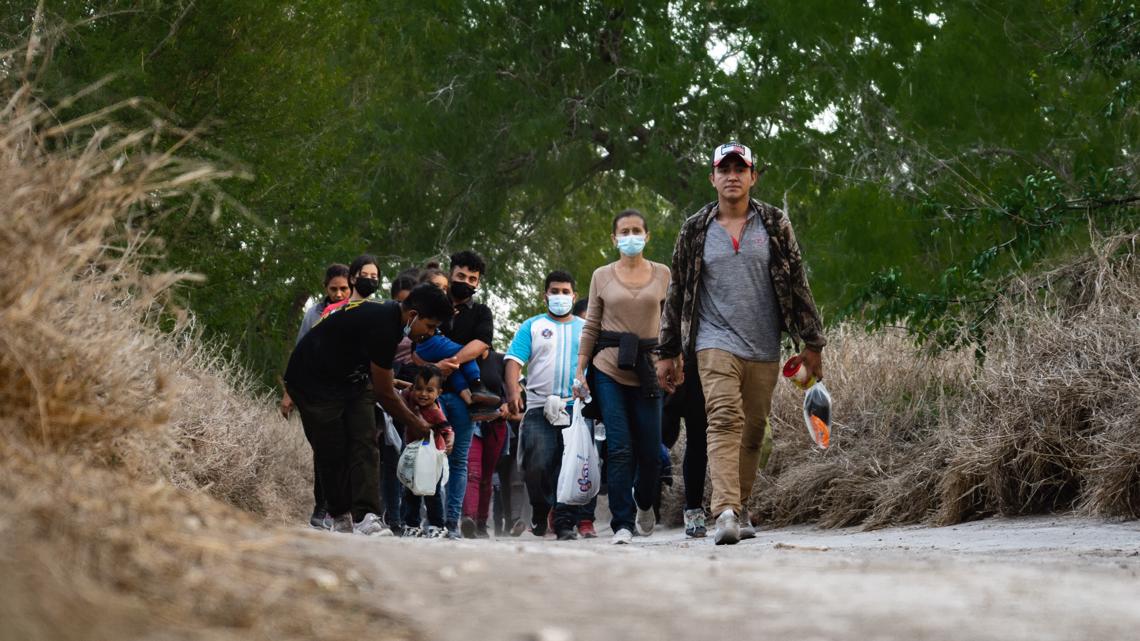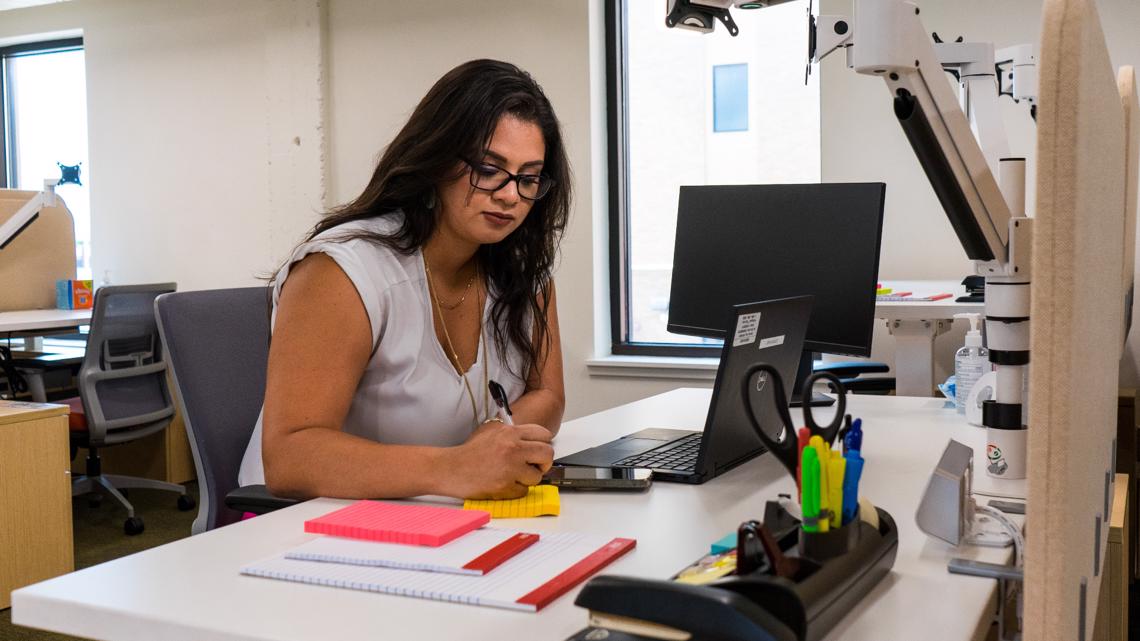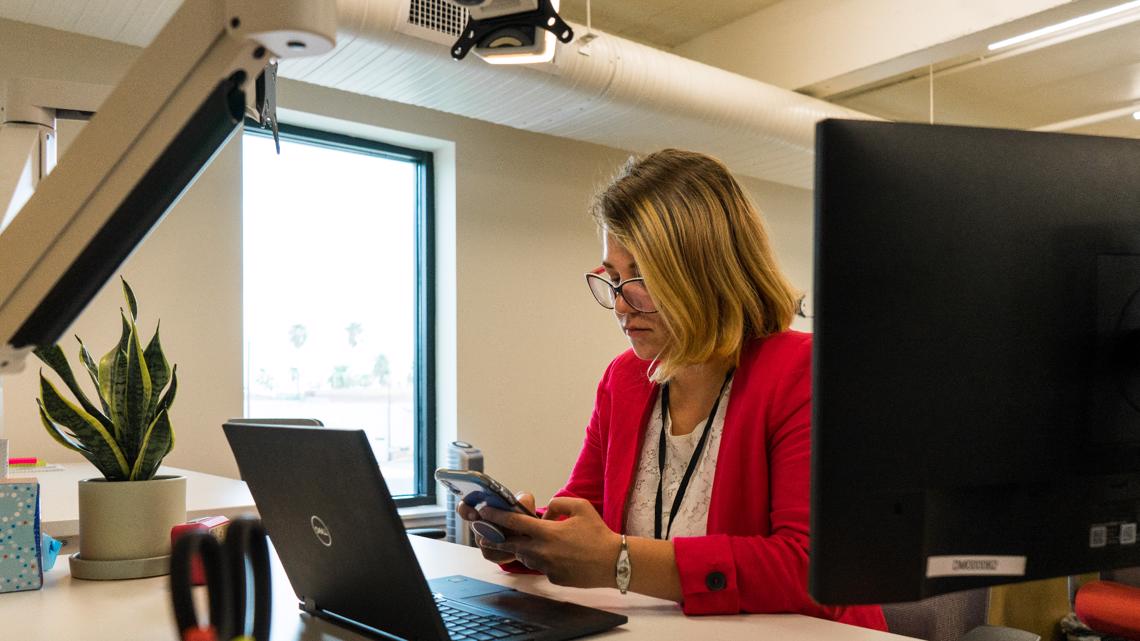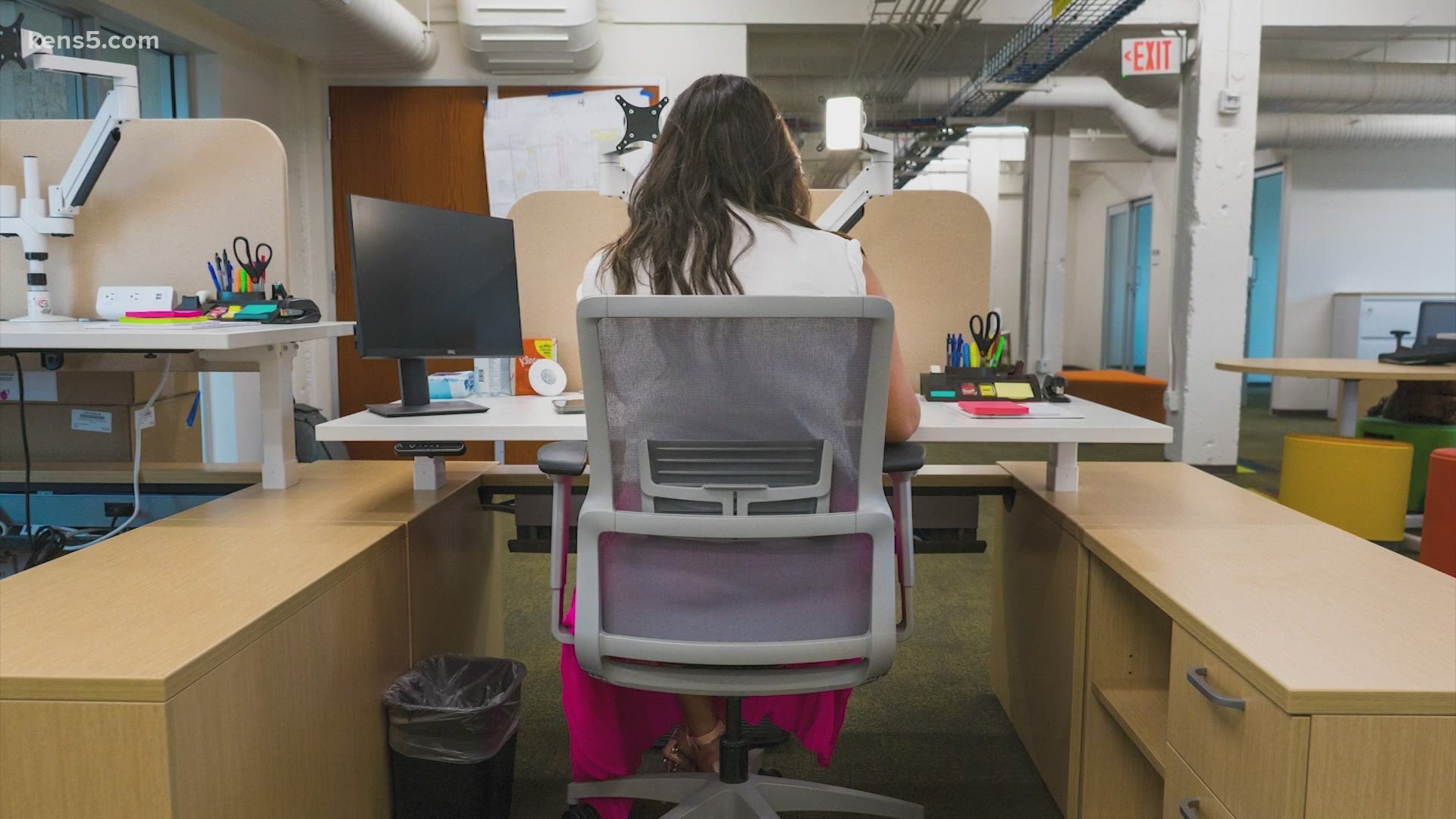HARLINGEN, Texas — We talk a lot about immigration, the impact it has on the U.S., the impact the dangerous journeys have on the people who take them. What we don’t often discuss is what hearing those stories does to the people who represent migrants in court or work on their legal cases.
“Mental health, self-care has always been a taboo thing to talk about,” Victoria Mora, supervising attorney at Refugee and Immigrant Center for Education and Legal Services (RAICES) told KENS 5. “There could be a lot of shame when one experiences these issues, not only depression (and) anxiety, but addiction. And unfortunately, suicide rates are very high among attorneys, and it is because of the difficulty of the job.”
Mora has been a practicing immigration attorney since 2006 and has focused her practice on unaccompanied children since 2008.
“It's difficult, it can be very draining,” Mora shared. “The job can be very rewarding, and at the same time, we listen to a lot of traumatic stories; we help people who are in crisis. But we never leave that crisis because there's always another client that comes along who is, again, also in crisis. So, we absorb a lot of that.”
Mora said for her, all this came to a head in 2017.
“I was experiencing panic attacks every day and suicidal ideation,” she said.


Since that time, step by step, Mora said she’d been talking about that time in her life, sharing her experiences and recently presenting at a conference put on by the Houston-based Children’s Immigration Law Academy (CILA.)
“It's important to take a moment and reflect and think about how we can advocate for ourselves, so we can continue to do this work and help more clients. And we can only do that if we're healthy,” Mora said.
A spokesperson for CILA told KENS 5 that the organization has been including “self-care” in their trainings since 2015; they include information on vicarious trauma and burnout. The trainings are open to legal staff and attorneys across the country.
“The stories these advocates hear are often stories of trauma, and it is inevitable that they will be deeply touched and changed by working with children and youth who have been through so much,” a CILA spokesperson said in an emailed statement to KENS 5. “We want to support these advocates, and offering trainings on vicarious trauma, burnout and self-care is one key way for us to support them.”
“I think it's expanding the definition of self-care for those who don't who aren't too familiar with it,” Mora said. “Self-care can just mean playing with your child, self-care can mean getting off of social media. Self-care can mean going for a walk.”


Going for a walk or taking some self-care time can be a foreign concept.
“I've worked with several private practice attorneys doing immigration, and I've never talked about self-care,” said Audrey Archer, children’s staff attorney representing unaccompanied minors held in shelters in the Rio Grande Valley.
She works for the South Texas Pro Bono Asylum Representation Project (ProBar), a project of the American Bar Association that provides legal information and pro bono representation to immigrants and asylum-seekers.
“I mean, you see the attorney get burnt out. But you never thought like, ‘hey, this month, make sure you take a day.’ ProBar has this policy of where they give half a day of self-care per month and it's for us to take whenever you want. I was like, ‘what? Who needs that? Like, I'm here to work.’ You don't realize, how much more productive you are when you take that self-care and you come back more energized,” Archer said.
“I think people have this perception of self-care being weak,” Archer added. “’There's something wrong with me,” and nothing has to be wrong with you. You can't pour from an empty cup, right, you can't.”


“I have heard stories that have impacted me and have been difficult,” said Ali Sheets, an immigration attorney for ProBar based in Harlingen. “I needed to process them afterwards.”
“For those that don't know what vicarious trauma it is” Sheets explained, “[It’s] like if you're on the side of the road and a car goes through a pothole and you get splashed, that water you're splashed with is the vicarious trauma. You weren't in it, you didn't go through the puddle, but you still feel the effects of it.”
“If you take care of yourself, you are able to more effectively represent your clients,” Sheets said.
The American Bar Association (ABA) told KENS 5 it encourages everyone in the legal profession or law students who may be struggling with mental health issues to seek help.
“Studies show that a substantial proportion of lawyers and law students suffer from depression and anxiety and substance-use disorders at far higher rates than the general public,” said Patricia Lee Refo, ABA president. “The increased burden caused by the pandemic and the shift to working remotely has elevated the stress and anxiety experienced by legal professionals.”
RESOURCES
Self-care training opportunities on CILA website:

